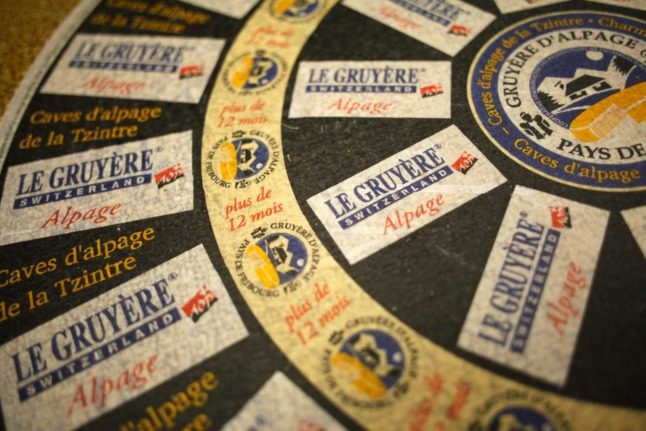Swiss dairy producers are cheesed off after an American court ruled ‘Gruyere cheese’ does not have to come from the Gruyères region in order to bear the name.
A legal consortium representing Swiss and French cheesemakers had sued for trademark protection, hoping to claim ownership of the name in a similar way to champagne, Scotch whisky or cognac.
The American court however denied the claim, saying American consumers considered Gruyere as a style of cheese rather than a product from a particular origin.
As a consequence, American cheesemakers or indeed dairy producers from any other region were free to sell Gruyere cheese in the US under the Gruyere name.
Cost of living: How to save on groceries in Switzerland
In effect, the judge found Gruyere to be just a variety of cheese like cheddar, rather than a protected product from a certain region like Roquefort.
According to the judge, it appears the popularity and ubiquity of the cheese may have been its downfall.
“It is clear from the record that the term Gruyere may have in the past referred exclusively to cheese from Switzerland and France,” the judge wrote.
“However, decades of importation, production, and sale of cheese labeled Gruyere produced outside the Gruyère region of Switzerland and France have eroded the meaning of that term and rendered it generic.”
In effect, the judge held that when American consumers scour supermarket shelves for Gruyere, they do not believe they are buying a product which is or which must be imported from Switzerland.
The legal consortium has promised to appeal the ruling in the US courts.
What does this mean for Swiss consumers?
The ruling, while important in the context of export, does little to influence the protected status of the name in Switzerland and in the European Union and the United Kingdom.
Gruyere is one of of 12 cheeses from Switzerland which is a part of the European Union’s Protected designation of origin (Appellation d’origine protégée) framework.
This means that use of the name is protected in these territories.
Some of the other cheeses to be offered protection include Emmethal, Raclette du Valais and Ticino Alpkäse.



 Please whitelist us to continue reading.
Please whitelist us to continue reading.
Member comments